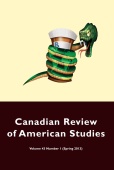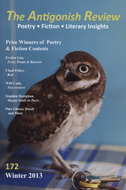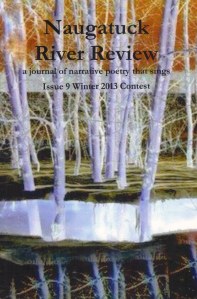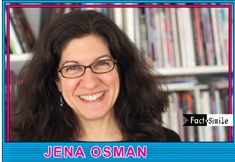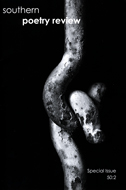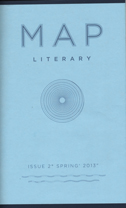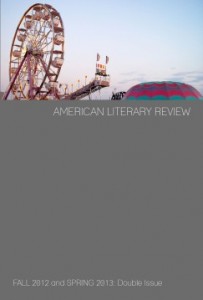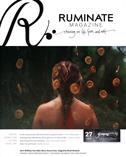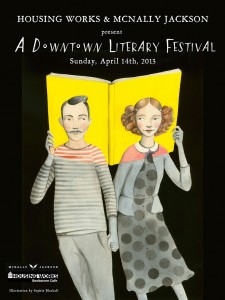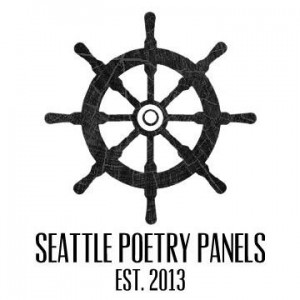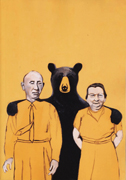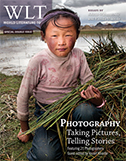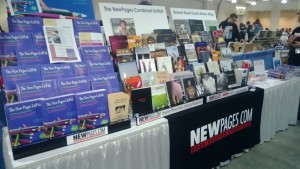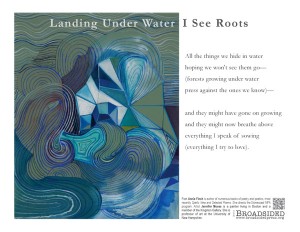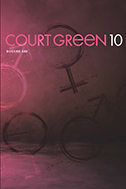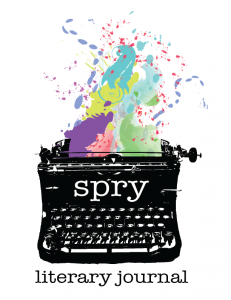 Check out Spry Literary Journal, a brand new online, biannual publication that features creative nonfiction, fiction, flash prose, and poetry that is brief, “works that rely on each word to be agile, lithe, to carry its own weight—to be spry.” Editors Erin A. Corriveau and Linsey Jayne said that inside the issues, readers will find “works that will move them to tears, works that will make them laugh, and works that will challenge them to see the world through new and imaginative lenses. . . . They will find their reflections in magical realism and the art of the real. Readers can expect to find creative nonfiction, poetry and fiction from seasoned authors and first time published writers as well. Their work is risky, vulnerable, historical, and honest.”
Check out Spry Literary Journal, a brand new online, biannual publication that features creative nonfiction, fiction, flash prose, and poetry that is brief, “works that rely on each word to be agile, lithe, to carry its own weight—to be spry.” Editors Erin A. Corriveau and Linsey Jayne said that inside the issues, readers will find “works that will move them to tears, works that will make them laugh, and works that will challenge them to see the world through new and imaginative lenses. . . . They will find their reflections in magical realism and the art of the real. Readers can expect to find creative nonfiction, poetry and fiction from seasoned authors and first time published writers as well. Their work is risky, vulnerable, historical, and honest.”
Linsey said that as her and Erin came to the end of their MFA program and their work with Mason’s Road journal, they realized that the next step would be to make a literary journal of their own. “During our time in the MFA program, we had each worked on a critical thesis that lent itself to the study and creation of concise literature.”
Eager to branch out, Linsey said that they hope to eventually become a triannual publication, introduce audio/visual elements to the journal, and explore opportunities for other formats beyond the online model. “We are looking forward to planning our first launch party, building up our site, hosting contests, and much, much more,” she said. “We’re more eager than anything, though, to see each new submission that comes through our manager, and to determining which pieces will make future issues come to life.”
Each of Spry’s issues features a five-question interview with an established writer. Linsey is pleased to announce that the first issue features Porochista Khakpour and encourages readers to read the interview and leave comments. “We’re excited for the future,” she said, “we have some exciting interviewees lined up and more great submissions coming through every day.” She expressed that they are always open to new ideas and to contact her at any time.
The first issue also features creative nonfiction by Elizabeth Hilts, Jenni Nance, Alan Shaw, Amy Sibley, and Barbara Wanamaker; fiction by Kate Alexander-Kirk, Jeni McFarland, Wei He, Paul Pekin, and Ben Sneyd; flash by Allie Marini Batts, Lucas Burris, Adrien Creger, Christine Hale, Matt Lucas, Saeide Mirzaei, Bill Riley, Michael Dwayne Smith, Alexandra Todak, and Janna Vought; and poetry by Sheila Black, Conor Bracken, Jeremy Byars, Elizabeth Cooley, B.D. Fischer, Erin Hoover, Leigh Anne Hornfeldt, Paul Hostovsky, Kevin Miller, and Michael Sarnowski.
Submissions of short creative nonfiction, short fiction, flash (in any genre), and poetry are being accepted now through March 31 for the second issue. Linsey notes that for the flash category, they accept “fiction and nonfiction, as well as anything experimental in that genre.” Spry has a blind submission policy and accepts submissions via Submittable. For more submission guidelines, please view their website.

